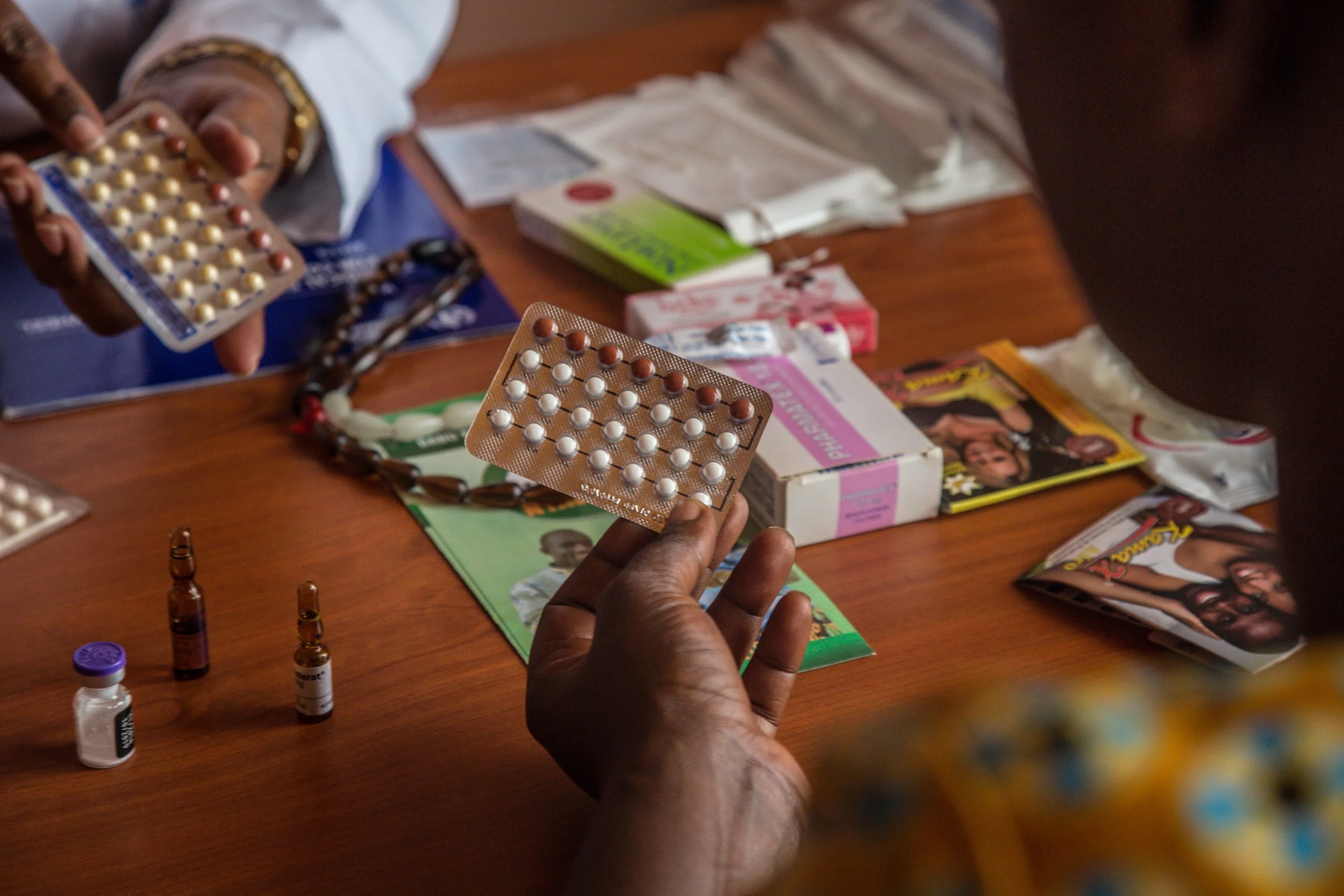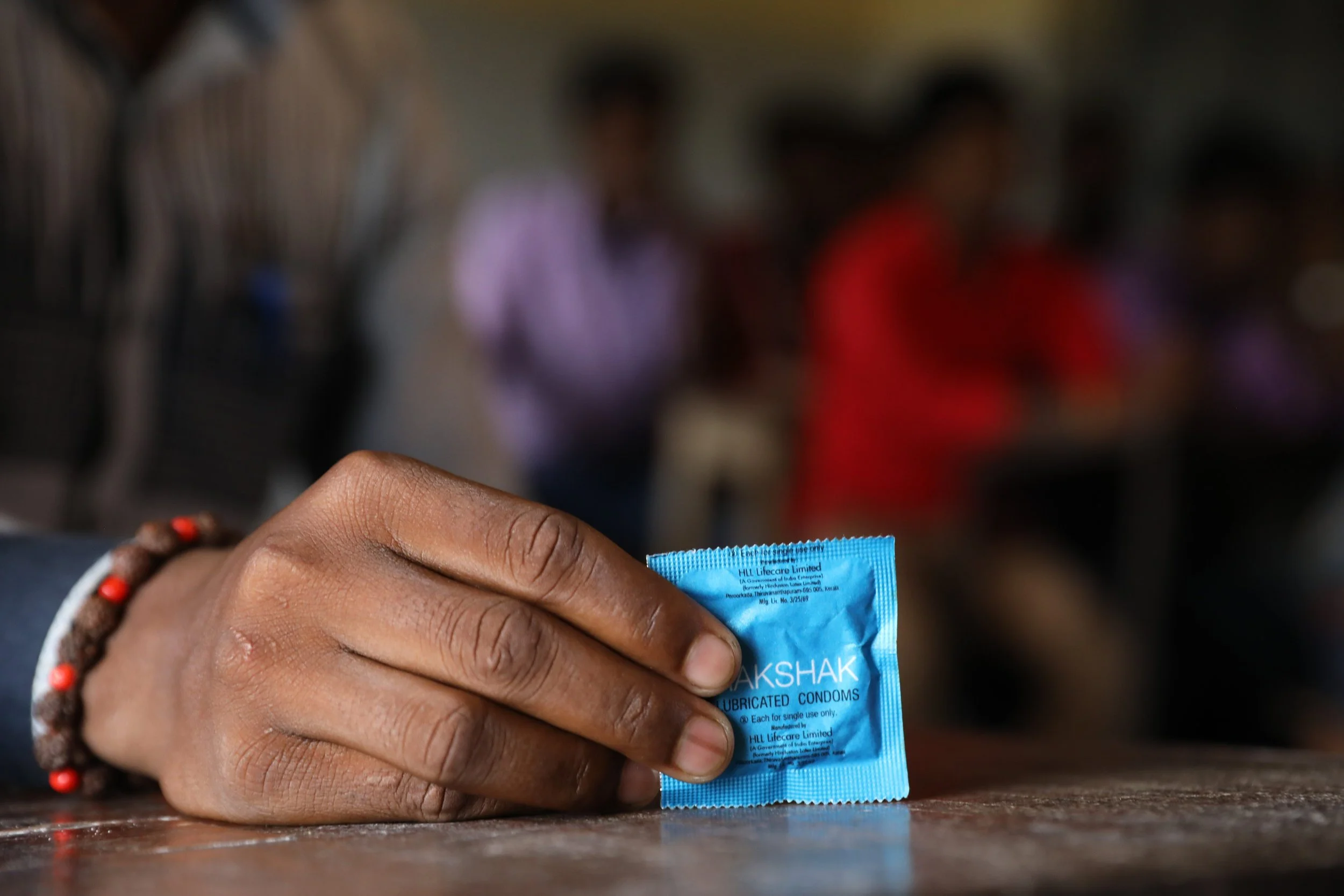Contraceptive Stigma & Self-Care Solutions
Yagazie Emezi | Getty Images | Images of Empowerment
by: Jodi DiProfio
As rollbacks on reproductive rights sweep the globe and threaten hard-won progress, today, World Contraception Day, serves as a rallying cry to defend and uphold contraception as a fundamental human right. At the Global Center for Gender Equality, we reaffirm that access to contraception is not only health care, but a right central to autonomy, gender equality, and reproductive agency. Since the first World Contraception Day in 2007, mounting evidence has underscored that voluntary family planning programs, including access to contraception, offer one of the strongest returns on investment in global health. Each dollar invested not only reduces future maternal health costs but also delivers broad social benefits: advancing gender equality and empowering women to make decisions about their bodies, lives, and futures.
A 2025 WHO evidence brief reaffirmed this: contraceptive use drives empowerment. It strengthens women's agency, expands access to education and income, and amplifies their participation in decision-making at home and in society. Today, funders, implementers, and global health experts broadly agree that reproductive autonomy is not a peripheral issue, but foundational to achieving gender equality.
Individual reproductive decisions too often collide with systems that reinforce stigma and barriers. When I was 19, I walked into a rural U.S. County health center confident in my choice to get birth control. Instead of support, I encountered a provider whose harsh, judgmental attitude left me walking away empty-handed, without the prescription I had come for. That experience made it clear: knowledge and intent alone are not enough.
If we are serious about reproductive rights, we must go beyond promoting access on paper. We must actively dismantle the social, cultural, and institutional barriers that stand between people and their reproductive rights, including access to contraception. Only then can the promise of empowerment become a reality for all.
The Role of Self-Care
In recent years, self-care contraception has emerged as a transformative force in sexual and reproductive health. As the World Health Organization emphasizes, self-care empowers individuals to manage their own health, whether independently or with the support of a provider. For contraception, that means not only more choices, but greater autonomy and agency. Self-care options reduce reliance on traditional gatekeepers, empowering individuals to make informed choices while protecting their privacy and autonomy.
A recent systematic review highlights the positive relationship between contraceptive self-care and reproductive empowerment. Self-administered methods enhance users’ sense of control, with evidence suggesting strong links between reproductive empowerment and self-efficacy. Innovations in self-care can help address barriers faced not only by those with limited access, but also by individuals experiencing stigma or anxiety when exercising their reproductive health choices. As we design new contraception products and interventions, centering empowerment and reinforcing agency remains critical.
In March of this year during a speech at the Future of Family Planning Convening, then-UNFPA Executive Director Dr. Natalia Kanem captured this vision powerfully. She described a future of “autonomous decision-making by fully empowered users of contraception who need no arbiter. Who need no permission from the husband, the significant other, the mother-in-law, the father, or any authoritative figure nominated by patriarchy. No doctor. No nurse. No gatekeeper’s intervention.”
Dr. Kanem goes on to state that “…this comes with the understanding that the risk proposition of hormonal or barrier methods will become so improved, that access will be through self-care.”
Increased investment in contraceptive self-care innovation and research and development (R&D) is critical to expanding access and advancing gender equality. Yet funding for contraceptive R&D has remained relatively stagnant, concentrated among a few funders with limited diversity, and often focused on products that are not user-controlled. Redirecting attention toward user-centered and self-administered contraceptives can expand choice, improve acceptability, and strengthen health outcomes, particularly for underserved populations. At the same time, advances in digital and telehealth technologies can broaden educational outreach and support, making contraception more accessible across a range of settings. Substantial investment in reproductive self-care not only improves reproductive health outcomes but also plays a vital role in achieving broader goals of gender equality by facilitating autonomy, reducing stigma, and overcoming systemic barriers to contraception.
Dismantling Barriers
Progress cannot rely on product innovation alone. Persistent gender barriers, including stigma, limited autonomy, and unequal power dynamics restrict individuals’ ability to access and benefit from contraception. Addressing these challenges requires systemic change: policies that expand method options, philanthropic partnerships that mobilize resources, and education campaigns to dismantle harmful myths and rewrite false narratives about sexual health.
Paula Bronstein/Getty Images/Images of Empowerment
Feminist organizations, global health leaders, and advocates are building coalitions and evidence to promote client-controlled contraception, challenge stigma, and drive inclusive policy reform. At the Global Center for Gender Equality (GCfGE), we know that real progress is grounded in evidence-based action and deep partnerships. Rooted in feminist principles, our multidisciplinary team combines expertise in research, policy, and philanthropic strategy to address the root causes of gender inequality through gender integration, feminist leadership, and system-wide advocacy. We support our partners in designing, developing, and adapting programs and interventions, including in contraception and women’s health research and development, to integrate gender considerations and feminist principles, thereby maximizing impact. For example, an evidence review conducted by GCfGE on behalf of a partner found that contraception and family planning can reduce high parity, unintended pregnancies, and short birth intervals, which are all factors associated with poorer maternal and newborn health outcomes. By preventing these risks, family planning promotes better maternal mental health, lowers the incidence of common perinatal mood disorders, and supports healthier newborns. Additionally, longer birth intervals and planned pregnancies enhance women’s overall health, strengthen their social status, and expand their economic opportunities.
This rights-based, gender-responsive approach is also recognized by leading global institutions such as the United Nations Development Programme (UNDP) and the World Health Organization (WHO) as essential for transforming health systems and breaking down barriers to equitable contraceptive access. At GCfGE, we see the transformative power self-care contraception to expand reproductive health access and advance gender equality. On World Contraception Day, we reaffirm that dismantling barriers and empowering individuals through self-care options is essential not only for reproductive autonomy, but also for gender justice.



